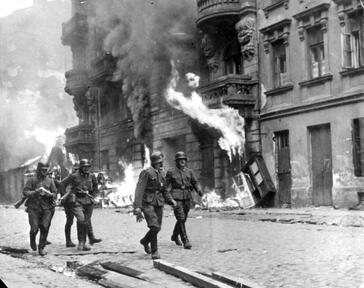On official and less official history – Ofer Aderet in Haaretz:
‘Two hundred historians, including senior Holocaust scholars from Israel and around the globe, signed a letter in support of Prof. Barbara Engelking, a Polish historian who has been under attack in her homeland after she said the Poles did not do enough to help Jews during the Shoah.
“We, the undersigned scholars of the Holocaust Era, the Second World War, and Modern and Jewish History, express our firm support for Professor Barbara Engelking and for academic freedom, in the face of an unbridled and unfounded attack by politicians, media, and other public figures …
We can attest to the fact that she is a scholar of impeccable personal and professional integrity. Her scholarship adheres to the highest academic standards, for which she has earned worldwide esteem,” the historians wrote.’
(…)
‘Among those who signed the letter of support are leading scholars of the Holocaust, World War II and modern history – from Yad Vashem and universities in Israel and around the world. Among the best-known signatories are professors Havi Dreifuss, Dina Porat, Dan Michman, David Silberklang, David Assaf, Motti Golani, Omer Bartov, Yfaat Weiss, Dalia Ofer and Sharon Geva. Prof. Jan Gross, the author of the book “Neighbors: The Destruction of the Jewish Community in Jedwabne, Poland,” which documented the massacre of Jews by Poles in 1941, signed the letter, too.
The letter joins a previous one supporting Engelking last month from all the leading Holocaust research institutions in Israel, led by Yad Vashem. Engelking is the founder and director of the Polish Center for Holocaust Research in Warsaw.
Engelking came under attack after she gave an interview on the TVN television station, which is a subsidiary of the American media giant Warner Brothers Discovery, and Poland’s largest private television network. “Jews were unbelievably disappointed with Poles during the war. They knew what to expect from the Germans, [who were] the enemy… but the relationship with Poles was much more complex,” she said in the interview.
The interview marked the 80th anniversary of the Warsaw Ghetto Uprising.’
Read the article here.
This is just an example what can happen when a state decides what history and what’s not. Yes, we can argue that laws that prohibits Holocaust-denial, these laws exist for example in Germany, is also arbitrary. To a certain degree that’s the case. That we need those laws is a defat, but given its history it’s understandable that Germany decided to prohibit publicly denying the Holocaust.
No sane person would argue that Holocaust denial is indispensable for an open debate about history. As no sane person would argue that the position that World War I never happens enhances our knowledge about that war.
Interesting enough nobody denies the fact that World War I and its trench wars happened.
The Polish laws are intended to whitewash the history of the country and to curb any open discussion about the past.
The state as whitewasher of the past, that’s where the problems start.
